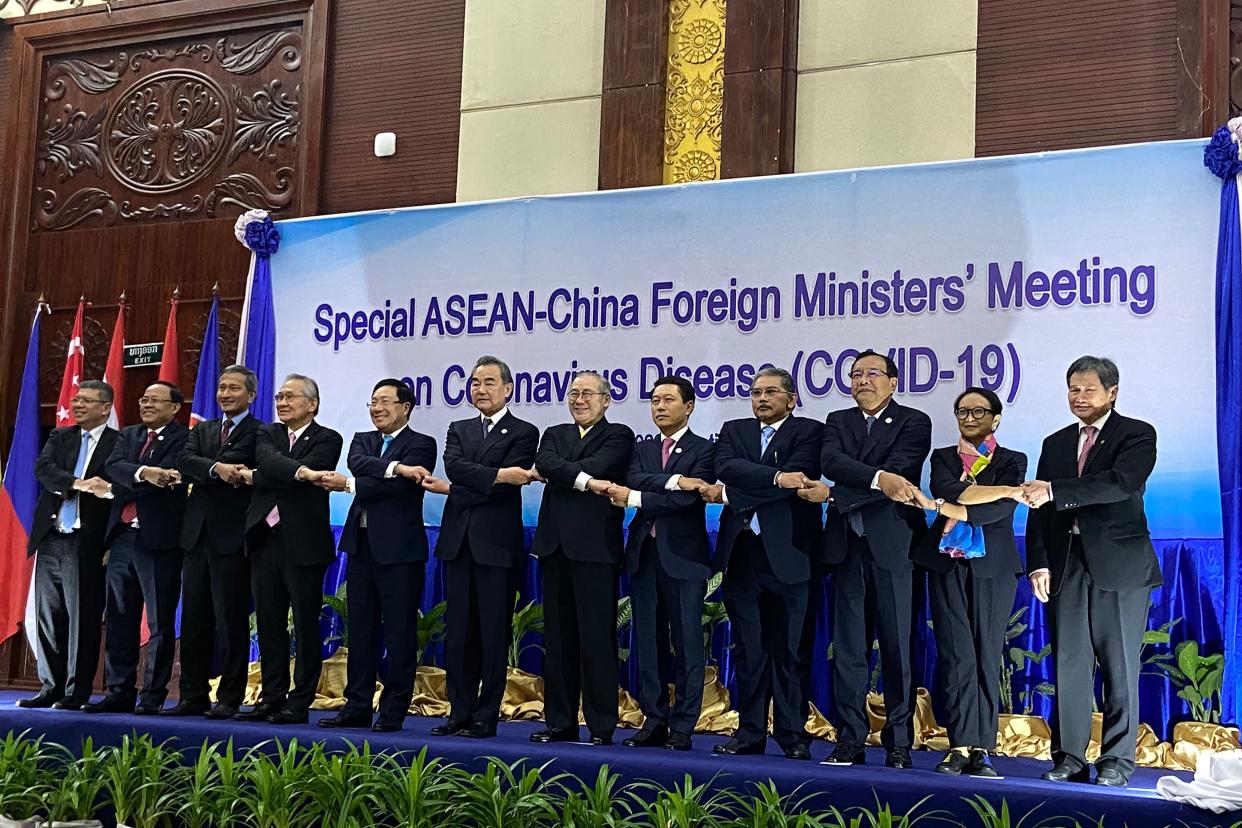COVID-19: Coming weeks crucial to whether containment has borne fruit, says Vivian Balakrishnan

SINGAPORE — The next couple of weeks will be crucial in ascertaining if measures to contain the COVID-19 coronavirus outbreak in Asian countries have borne fruit, said Minister for Foreign Affairs Vivian Balakrishnan.
In a CNA interview on the sidelines of the ASEAN-China Foreign Ministers’ Meeting in Vientiane on Thursday (20 February), he said that developments over the next two to three weeks may define whether the outbreak – which is largely confined to Asia at the moment – becomes a global pandemic.
“Over the next two weeks, we will have a clearer idea of the trend within China – whether its unprecedented actions have borne fruit, whether the number of new cases will fall, or whether in fact you're dealing with widespread community transmission and a pandemic,” he said.
“We will also have to watch what happens in Northeast Asia and Southeast Asia, including within Singapore. If the cases remain confined to clusters, like what we have now, and you don't see further evidence of widespread community transmission, that will be positive.
“But if on the other hand, you see across Northeast Asia and Southeast Asia widespread community transmission, then you know you're in a completely different phase of what I believe may become a global pandemic.”
Concerns of under-reporting countries unfounded
More than 75,000 people have been infected globally with more than 2,200 deaths, mostly in China. Six out of the 10 ASEAN countries have confirmed cases of the virus; Singapore alone has 85 cases, with 37 discharged as of Thursday.
While there have been concerns that some countries may be under-reporting confirmed COVID-19 infection cases, Dr Balakrishnan believes that such concerns are unfounded, even as there are sizeable differences in the “sophistication and ability” of healthcare systems among the countries.
“This is a situation that you can't hide. If you haven't noticed it yet – a fire is smouldering under your feet, it will soon become rapid. So I don't think anyone is deliberately or wishfully engaged in denial,” he told CNA.
“But we need to accept that there is great diversity in the sophistication and the ability of our healthcare systems both to detect and treat, and to the extent that we can help one another.
“I'm confident actually of our response in Singapore. But we should also remember that it is also in our own long-term interest to help our neighbours – to be constructive, to help them level up their standards, and to work together. That's protecting Singaporeans, too.”
He gave the example of Singapore laboratories developing Polymerase Chain Reaction (PCR) tests immediately after China isolated the COVID-19 virus and published the genome worldwide.
Furthermore, when Wuhan – the epicentre of the outbreak – was overwhelmed with infections, Singapore was able to help in providing some test kits at the acute phase.
Such support is important to maintain relations between Singapore and other Asian countries, given that some of the world’s busiest land and air links are in Singapore and around the Asia region, said Dr Balakrishnan. This will translate to “profound knock-on effects” in tourism, ports, airports, global supply chains and commodity prices.
No lax attitude among regional countries
Dr Balakrishnan also refuted concerns that some countries in the region are showing a lax attitude in dealing with the COVID-19 outbreak, saying that each country has “valid differences in approach and priorities”.
“Everyone takes this seriously, no question about it,” he said. “What I am more concerned about is that given the diversity in Southeast Asia and the diversity in the sophistication of healthcare systems; it will be dreadful if we have an epidemic or pandemic that catches alight in countries whose healthcare systems are much less able to cope.
“In the meantime, each of us at the domestic level has to solve our own problems and do our best. And if we do our best and we cooperate with our neighbours, we can reduce the potential impact it has on others whose economies and healthcare systems may actually be less able to tolerate this challenge.”
By doing their best to contain the viral outbreak, Dr Balakrishnan believes it will buy time for medical experts to refine clinical protocols, improve testing, identify the drugs that will work and hopefully develop a vaccine for the COVID-19 virus.
Stay in the know on-the-go: Join Yahoo Singapore's Telegram channel at http://t.me/YahooSingapore
Related stories:
COVID-19: Singapore confirms 1 new case bringing total to 85; 3 more discharged
COVID-19: First patient in Singapore discharged after 28-day stay, counts himself lucky – report
Singapore Red Cross raises $6m for COVID-19 relief efforts in China
COVID-19: Israel bans entry for foreign travellers from Singapore



